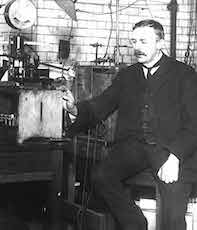Helge Kragh
The Historical Relations between Physics and Chemistry

While the two sister sciences, physics and chemistry, have generally interacted in fruitful harmony, the relationship has at times been disharmonious, typically with physicists (or philosophers) arrogantly considering their own science to be superior to the supposedly more primitive and empirical chemistry. Attempts to subordinate chemistry under physics associated with a reductionist rhetoric have led to increased separation and sometimes to frictions over disciplinary boundaries. The imperialist attitude of some physicists was expressed as early as the late seventeenth century and it can be followed up to the present. I have previously dealt with the issue as sillustrated by the controversy over the concept of an element ca. 1880-1920 and also by the emergence of quantum chemistry at about 1930. My current focus is on the physics-chemistry relationship as seen through the work and career of Ernest Rutherford. Although a physicist with little respect for chemistry, Rutherford received the Nobel Prize in chemistry and not in physics. What was the impact of his seminal contributions to radioactivity and nuclear physics on the chemical community? How did Rutherford interact with chemists and use their competences when he needed them? More generally my present work investigates the changing disciplinary borders between the cultures of physics and chemistry in the period from about 1900 to Rutherford’s death in 1937.
